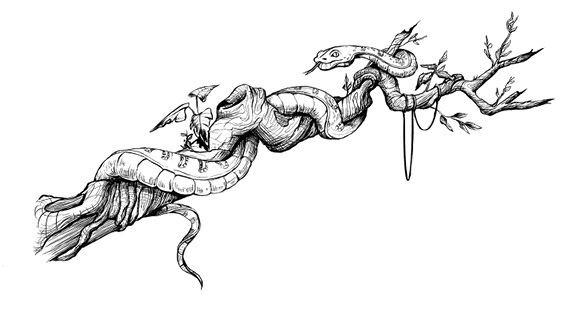
3.
It soon turned out that Dad needed to take his own advice. We collected our luggage (from the squeakiest baggage-reclaim carousel ever) and stumbled onto the hot concrete apron beyond the airport building, where a colourfully dressed crowd seemed, from the sound of things, to want something quite badly. Money, of course, in exchange for taxi rides, hotel rooms, bananas, fake DVD box sets, and even, according to the little old lady wearing odd trainers, tins of glue. Fellow passengers from our diverted flight stood blinking in the harsh sunlight, trying to work out their next move. We fought our way through the throng to the kerb. The guy standing next to us looked as if he had brought everything he owned on the trip, including a set of golf clubs that toppled off his airport trolley when Amelia bumped into it. Clubs slid out, balls bounced away.
I helped her retrieve them while Dad, hands on his hips, legs apart, argued that we should check in to a hotel before deciding what to do. Mum wouldn’t hear of that though. ‘We have to charter a plane to get us to the capital right away,’ she said.
‘But the weather …’ Dad was drowned out by the harsh rattle of an approaching motorbike.
‘It will probably have cleared by the time we’re back there!’ Mum hollered over the noise. She’d changed her tune, fear of flying being no match for her commitment to getting on.
As I often do, I sensed something was wrong before it happened. The motorbike veered towards us. Neither of the guys on it were wearing helmets. I learned later that’s the norm in Africa, but in that moment I was surprised to see beaded sweat on the driver’s brow. His pillion passenger leaned out towards Dad as they got close. Dad goes to the gym three times a week and his reactions are still quick enough for him to beat me at ping-pong half the time, but he cottoned on to what was happening here as if underwater, and did nothing sensible to protect himself; he just stood there. The motorbike cut in and Dad staggered forward as the thief, having yanked his briefcase from his hand, shoved him to the ground.
The motorbike was ancient, its exhaust shot, its powers of speeding away pretty laughable. But it was able to pull beyond us before I could grab the briefcase back, and, as it flickered around the assembled crowd, I knew I couldn’t catch it up.
Other than meeting my friend Xander there’s not much my first year at boarding school has been good for, apart from learning how to play this game they call ‘roofs’. It’s banned and therefore popular, and involves throwing a tennis ball from the yard up onto the roof of our four-storey boarding house, the idea being that the next boy in line has to catch the ball when it comes down. That sounds simple, but the house is an ancient Victorian relic, and its roof is made up of all sorts of pitched hips, gables and buttresses. Throw the ball high and accurately enough and those weird slopes become a pinball machine, making it pretty hard to catch. Throw it even higher and you might break a slate, which is why the game is banned, and accounts for four of the six detentions I had in my first term.
As the motorbike wove its way through the crowd of bewildered passengers and clamorous hawkers, I realised I was still holding one of the golf balls I’d picked up from the spilled trolley. There was no way I could hit the bike, driver or passenger through the throng. But the road swept close to the side of the brick-built terminal building just beyond the crowd, and before I knew what I was doing I’d unleashed that golf ball with a year’s worth of tile-busting roofs practice straight at the wall. Golf balls bounce hard. The one I threw was still flying level when it hit the bricks. I got the angle right: no doubt it was a lucky shot – Amelia wasted no time telling me that afterwards – though it must be said that I have a good arm. Either way the golf ball struck the guy driving the bike in the face, hard enough to make him lose control. He swerved into the kerb and both men fell off. By the time I’d made it through the crowd the driver was back astride it, revving hard. His passenger had to run and jump to make it back onto the saddle.
He’d dropped the briefcase in the crash. I picked it up and returned it to Dad. Subsiding adrenaline left me shaky as I did this, but it wasn’t just the aftermath of having sprung into action that made me unable to meet Dad’s eye, having done something so obviously helpful. Weirdly, my achievement made looking straight at him even harder than usual. The awkwardness itself wasn’t new; I’d not been able to face Dad properly in a long while.
‘Thanks!’ he said. ‘My passport, laptop, all our money. How brilliant of you, Jack. What an amazing …’ He tailed off. Though I couldn’t lift my eyes to his, I felt his gaze upon me. He certainly sounded pleased, but what, when he saw me now, did he actually see?